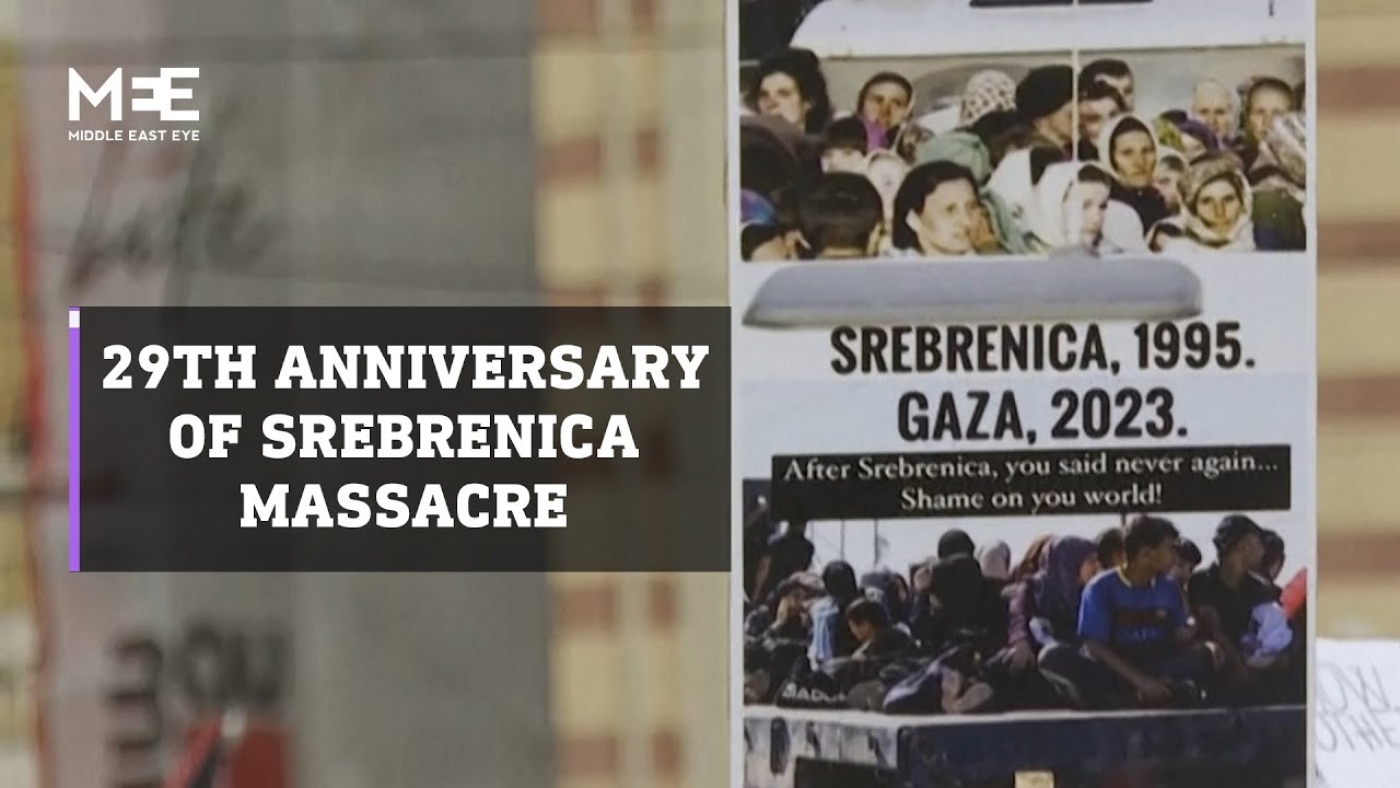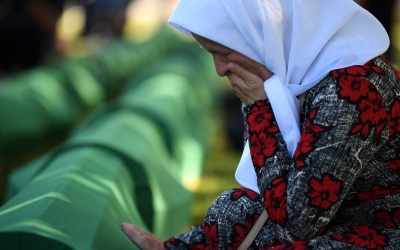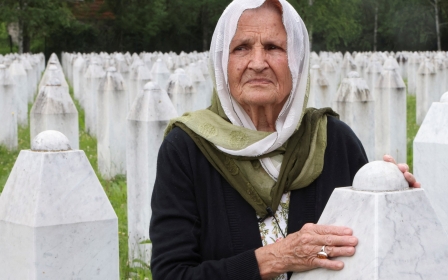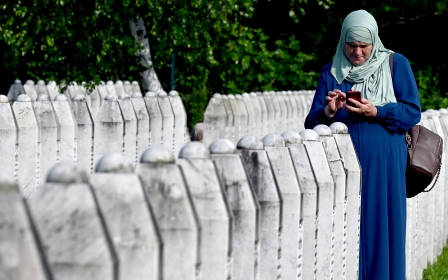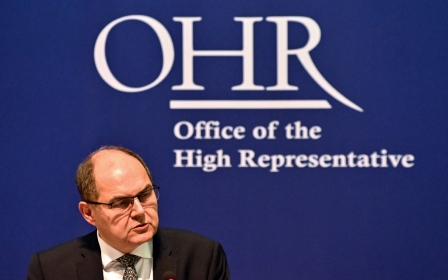Srebrenica massacre commemorated in Bosnia under the shadow of Gaza
Thousands gathered in the Bosnian town of Srebrenica on Thursday to commemorate the 29th anniversary of the massacre that saw more than 8,000 Bosnian Muslims executed by Serb forces during the country's war.
The commemoration of the massacre - which took place after 11 July 1995, when Bosnian Serb forces captured what was then a UN-protected enclave - comes under the shadow of the ongoing Israeli assault on Gaza, which has drawn a number of parallels from activists and commentators.
The Bosnian War of 1992-1995, which took place between Bosnia and Herzegovina's Croats, Muslims and Serbs, claimed approximately 100,000 lives and has left the country tense and divided along ethnic lines decades later.
The war saw widespread ethnic cleansing, and the Srebrenica massacre has officially been recognised as a genocide by a number of international organisations, including the UN.
The remains of 14 more victims of the massacre - including a 17-year-old boy - were due to be buried at a memorial cemetery in Potocari on Thursday, just outside the town.
New MEE newsletter: Jerusalem Dispatch
Sign up to get the latest insights and analysis on Israel-Palestine, alongside Turkey Unpacked and other MEE newsletters
Among those taking part in the commemorations in Potocari was Palestinian journalist Motaz Azaiza, who escaped from Gaza in January along with some family members.
“I want to thank the people who raised the flags of Palestine alongside the flags of Bosnia and Herzegovina. I wasn't born when all this happened in Srebrenica," the photojournalist told reporters at the ceremony.
“Since I was little, I listened to what happened here, through the news, through friends. The people here have great support from the people of Palestine and I thank you for your solidarity."
'Never again'
A number of campaigners and politicians, including Benjamina Karic, the mayor of Sarajevo, have drawn direct comparisons between Srebrenica and Gaza.
The Bosnian genocide has also been referred to in relation to the ongoing war in Sudan, where non-Arab civilians in Darfur have been the victims of massacres perpetrated by the paramilitary Rapid Support Forces.
Writing on social media on Wednesday, Karic branded the killings in Gaza a "genocide".
"The reaction of the world public to these terrible and painful wounds on the body of Bosnia and Herzegovina was: 'Never again!' Today, three decades later, we are witnessing the terrible crimes and genocide being carried out against the people of Palestine," she said.
Although Israel and Bosnia and Herzegovina have enjoyed good relations since the country's formation in the 1990s, the Gaza war has put a strain on relations, with numerous pro-Palestinian demonstrations taking place in the eastern European country.
In May, tensions flared after Yahel Vilan, Israel’s ambassador to Serbia, told a Russian media outlet that he didn't believe Srebrenica constituted a genocide and that referring to it as such “diminishes the importance of that term".
Bosnian Foreign Minister Elmedin Konakovic called Vilan’s comments "shameful", saying they were "not only deeply wrong, but also insulting to the victims and survivors of the genocide in Srebrenica, as well as to all those who hold to truth and justice in the international community”.
Middle East Eye delivers independent and unrivalled coverage and analysis of the Middle East, North Africa and beyond. To learn more about republishing this content and the associated fees, please fill out this form. More about MEE can be found here.


